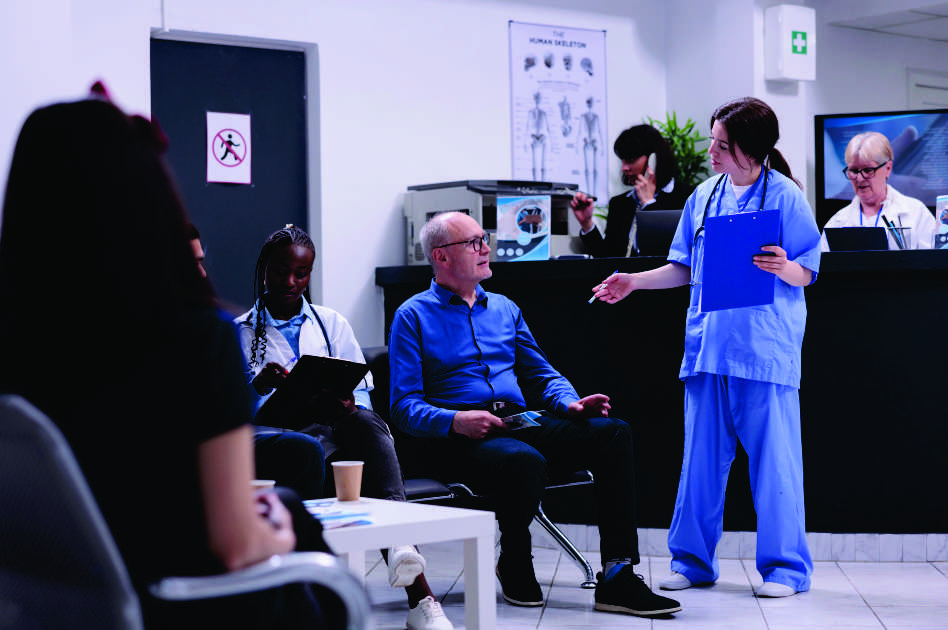
Missed medical appointments are a significant issue in the healthcare system, affecting doctors, hospitals, and the overall healthcare infrastructure. These missed appointments, often referred to as “no-shows,” can lead to substantial financial losses, inefficiencies, and poorer health outcomes. Let’s delve into the cost implications of missed appointments, relevant statistics, and the critical role that transportation plays in this issue.
Financial Impact on Healthcare Providers
Missed appointments cost the U.S. healthcare system an estimated $150 billion annually. Each missed appointment represents a lost opportunity for healthcare providers to deliver care, resulting in financial losses. On average, each no-show costs a physician approximately $200 per hour. With no-show rates ranging from 5% to 30% nationwide, the cumulative financial impact is staggering.
For hospitals, the financial burden is even more pronounced. Hospitals operate on tight margins, and missed appointments can disrupt the scheduling and utilization of resources. This inefficiency can lead to increased operational costs and reduced revenue. Additionally, hospitals may face challenges in managing staff schedules and maintaining the availability of specialized equipment, further exacerbating the financial strain.
Impact on Patient Care and Health Outcomes
Beyond the financial implications, missed appointments can have severe consequences for patient care and health outcomes. Continuity of care is crucial for managing chronic conditions, monitoring treatment progress, and preventing complications. When patients miss appointments, it disrupts this continuity, potentially leading to worsened health conditions and increased healthcare costs in the long run.
For instance, patients with chronic diseases such as diabetes or hypertension require regular monitoring and adjustments to their treatment plans. Missing appointments can result in unmanaged symptoms, leading to emergency room visits or hospitalizations, which are far more costly than routine outpatient care. This not only affects the patient’s health but also places additional strain on the healthcare system.
The Role of Transportation in Missed Appointments
Transportation is a critical factor contributing to missed medical appointments. According to the American Hospital Association, approximately 3.6 million people in the United States do not obtain medical care due to transportation issues. These issues include lack of vehicle access, inadequate public transportation infrastructure, long distances to healthcare facilities, and the cost of transportation.
A study by UC Davis Health found that about 5.8 million Americans miss or delay medical care annually because of transportation barriers. These barriers are particularly pronounced in rural and underserved urban areas, where public transportation options may be limited or nonexistent. For many patients, the lack of reliable transportation means they cannot attend scheduled appointments, leading to missed opportunities for timely medical intervention.
Addressing Transportation Barriers
To mitigate the impact of transportation barriers on missed appointments, healthcare providers and policymakers must implement targeted strategies. Some effective approaches include:
- Transportation Services: Hospitals and healthcare providers can offer transportation directly to patients or partner with transportation service providers to ensure patients can attend their appointments. Using an app like TransLoc, which offers real-time tracking and scheduling for various transportation options, can help patients access transportation more effectively. By integrating these services, healthcare providers can significantly reduce the number of missed appointments due to transportation issues.
- Mobile Health Units: Deploying mobile health units can bring healthcare services directly to communities with limited transportation options. CalvertHealth Medical Center operates a Mobile Health Center that provides primary and preventive care services to residents facing transportation challenges.
- Telehealth: Expanding telehealth services can reduce the need for in-person visits, especially for follow-up appointments and routine check-ins. This approach can be particularly beneficial for patients with mobility issues or those living in remote areas.
- Community Partnerships: Collaborating with community organizations to address transportation needs can be effective. Grace Cottage Family Health & Hospital, for instance, collaborates with a volunteer driver program to help patients attend their medical appointments. Here again, an app like TransLoc can support this type of partnership by providing trip booking and vehicle tracking.
- Policy Interventions: Policymakers can play a crucial role by investing in public transportation infrastructure and creating policies that support affordable and accessible transportation options for all communities.
Missed medical appointments represent a significant challenge for the healthcare system, with far-reaching financial and health implications. Addressing the root causes, particularly transportation barriers, is essential for improving patient care and reducing the economic burden on healthcare providers.
Ready to work together to bridge the gap and ensure that no patient is left behind due to transportation challenges? Click here to connect with a member of the TransLoc team and let’s get started!